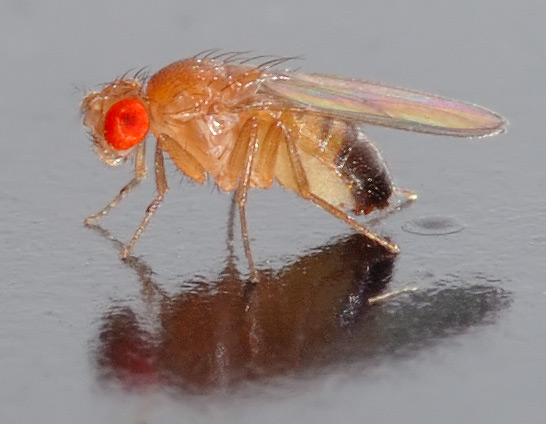 |
Laurence Cawley (BBC News) wrote a piece for the BBC website called Seven of the more unusual areas of university research. It makes for some interesting reading and does provoke the question about financially sustaining research in UK universities. |
However there is one clear mistake here. The work of Dr Barry Denholm at Cambridge is good science clearly motivated by medicine. Denholm studies cells called nephrocytes found in the excrement of flies and these cells are very similar to podocyte cells found in our kidneys.

Drosophila melanogaster, or common fruit fly.
Fruit flies have been used for a while now as a model organism as they are easy to care for and breed quickly. They give us way to preform experiments when it would be unfeasible or unethical to preform the experiment on a human.
The hope is, that due to the similarities of the certain cells found in flies and humans, kidney research could be conducted much quicker and cheaper than today. In particular studying the roles of genes in kidney disease becomes much easier.
The potential benefits to mankind are clear.
I will let other people defend the remaining six…

